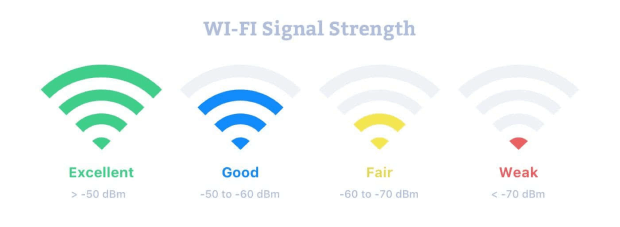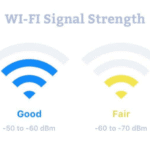
Rewind a few years, and the general public shopping for a domestic would scoff at taking a virtual reality excursion, applying for a mortgage on their cell telephone, or purchasing a residence without stepping foot in it. But millennials, the most modern crop of homebuyers, grew up with a cell phone attached to their hip and are a whole lot greater secure buying the whole lot from clothes to a house over the Internet. According to Redfin, a survey launched earlier this year, 45% of millennial homebuyers made a purchase sight-unseen in 2017.
And notwithstanding talk, the younger generations aren’t shopping for new houses, the National Research Association discovered purchasers aged 36 and younger represented the biggest share of home buyers, 34% of all purchases, last year.
Millennials, in addition to their older counterparts, begin their home searches online. They are rolling out digital truth tours, speedy online mortgage packages, and stay-at-home open houses. But they may be inclined to take it a step further, and the real property fitness realizes that.
VR Tours Popular Among Buyers
Take VR tours, for starters. In January, Coldwell Banker Real Estate polled three 000 U.S. Adults to gauge their interest in virtual fact domestic tours. It was observed that 77% of survey respondents need to take VR tours of homes before journeying, while eighty-four % need to see video pictures. They don’t simply want to get a concept of the format and circumstance of the house. More than two-thirds of 68%, said they need to apply VR to see how their current furniture looks inside the home. What’s more, 62% of survey respondents said they would go along with a real estate agent who made the VR era happen. Recognizing the call for, Sotheby’s International Realty offers customers 3D and virtual fact excursions of its houses. Sotheby’s said on its Website that the 3-D and VR Tours are made feasible by placing cameras in the course of the house. Users can view the 3D excursion immediately from Sotheby’s internet site and VR tours through a mobile device paired with a VR headset.
Generation Z Is Different Than Millennials
Generation Z, or “Gen Z,” are folks that are born after 1998, and bet what? They’re now influencing agencies because the oldest among them are coming into college age or heading to work. And, if you did not comprehend it, the vibrant new era is bigger than the Millennials, which organizations have been enamored with for years. The time has come to shift our gaze, as hard as it could be, from Millennials and begin to look at Gen Z, because they are about to become the next advertising obsession.
Each generation has its wonderful traits, and Gen Z is no different. Let’s check some of the fundamental ways they differ from the Millennials because it will ultimately impact how your business markets to them.
Give Them More Authenticity: Gen Z picked up on the equal hobby of Millennials to need authenticity and transparency; however, Gen Z desires more of it. A wonderful example of this in the enterprise is how American Eagle has found that its 0 Photoshop policy has attracted lovers from the Gen Z generation than Millennials.
Conversation Comes Through Technology: Gen Z is interested in being associated with brands and groups throughout their generation. If you want to attract consumers’ attention, you need to inform them of your tale on platforms, inclusive of Snapchat. Gen Z must have their devices, and they first relate to groups through their gadgets and then in different ways. Think of mobile because of the funnel via which you engage with Gen Z for the entirety, inclusive of even presenting the news.
Skip College, Straight to Work: Generation Z understands that they may be dwelling in an entirely new world. In their view, more traditional routes, which include going to university, don’t follow them in the digital age. Gen Z is not interested in large debt loads with student loans, and economists expect a large proportion of late teenagers to bypass college and move directly into the workforce.
Forget Teamwork: Millennials are known for being collaborative and playing a part in a crew in a shared experience. Not so with Gen Z. They are reverting to form in advanced generations that preferred to compete with each other. Gen Z isn’t always inquisitive about sharing their workspaces, and the general public is not interested in collaborative “group” working environments.
Independence is the Focal Point: Along with a similar vein of Gen Z eschewing groups, Gen Z is a miles more unbiased era. Gen Z is not interested in carrying any particular “hot” manufacturers. Instead, they may be individualistic, and they need others to view them as particular people. Businesses that are inquisitive about marketing to the brand new generation ought to think about storytelling that celebrates the man or woman.
Business Risk Taking: Millennials have been notoriously wary about beginning their own companies. The alternative is Gen Z. Gen Z is fifty-five percent more likely to want to become an entrepreneur of their very own business than Millennials. It stands to reason that if many from this era will no longer be going to the university, many will want to become business proprietors–specifically because work developments keep shifting from employment to freelancing, consulting, and so on.
Face-to-Face is Back in Fashion: Millennials have a more potent preference for conversation through technology, along with chats, video conferencing, or texts. However, Gen Z prefers face-to-face contact (which makes me satisfied). 53 perpercent the Gen Z populace choose to meet in person to speak about issues. How about that? What’s “vintage” is new once more.












